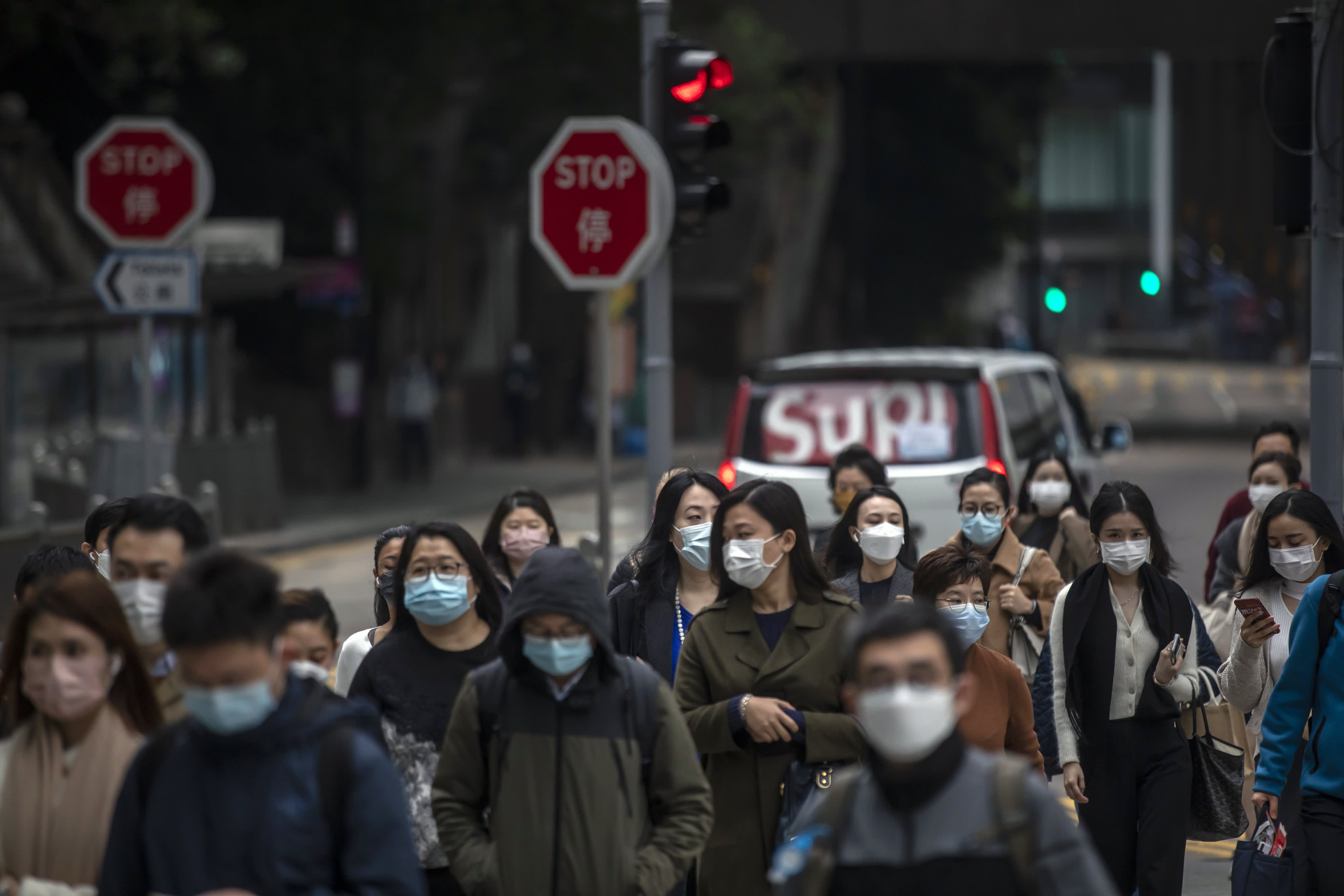
A road in Hong Kong on Feb. 15, 2022.
Paul Yeung | Bloomberg | Getty Images
The Hong Kong government announced Wednesday it will be spending more than 170 billion Hong Kong dollars ($21.8 billion) to fight the pandemic and support the economy, a day after authorities said virus control measures will be extended to April 20.
The semi-autonomous Chinese city is experiencing its fifth wave of coronavirus infections, with daily cases soaring to record highs. On Wednesday, Hong Kong reported 8,674 new cases.
Last week, Chief Executive Carrie Lam ruled out a full lockdown, but stuck with China’s zero-Covid policy.
During the budget speech Wednesday, Financial Secretary Paul Chan said the spread of the virus has “dealt a heavy blow to many people, disrupting both their life and work, and seriously affected the operations of small- and medium-sized enterprises.”
“At this critical time, we need to direct more resources to relieve people’s hardship and provide SMEs with some breathing space so as to stabilise the economy and maintain public confidence,” he said, according to an official translation of his speech.
The economic measures announced include:
- A 100% reduction in profits tax for businesses and salaries tax for individuals, capped at 10,000 Hong Kong dollars ($1,280);
- Consumption vouchers worth 10,000 Hong Kong dollars;
- Subsidy of 10,000 Hong Kong dollars for the temporarily unemployed;
- Rental waiver for businesses that have to be closed because of Covid rules.
The budget also allocates 22 billion Hong Kong dollars to “anti-epidemic” measures aimed at boosting Covid testing, procuring test kits and providing support to the city’s Hospital Authority, as well as 6 billion Hong Kong dollars to buy more vaccines as booster doses.
“I have earmarked $20 billion for other potential anti‑epidemic needs. We will provide full support to fight the epidemic should more resources be required,” said Chan.
The Hong Kong budget is “mainly carrot” instead of stick, and that’s good, said Paul Gambles, co-founder of advisory firm MBMG Group.
Alicia Garcia-Herrero, chief economist for Asia-Pacific at Natixis, told CNBC more spending is “good news,” and that the expenditure needs to be targeted at people and businesses who need it most.
Economic outlook
After two consecutive years of declines, Hong Kong’s overall economy saw a “visible recovery” in 2021 with a growth of 6.4%, Chan said.
He forecast growth of 2% to 3.5% for 2022 and said the outlook in the medium term is positive.
However, Garcia-Herrero said the city’s growth predictions were on the optimistic side. Natixis sees economic growth of slightly below 2% for 2022, assuming the current Covid wave passes around the end of March.
If the virus continues to spread, there could be a “lost first half,” she said on “Street Signs Asia,” indicating the growth in the first half of the year may not be as robust as the latter half.
She added that this year’s stimulus is “even more important” than last year’s, since growth will be slower.
“How much we need is not so much about the number, but how targeted it is so that it is not kept in the drawer. That’s the key,” she said.
Hong Kong’s economy has been battered by the U.S.-China trade war, domestic political unrest and the Covid pandemic in recent years.




